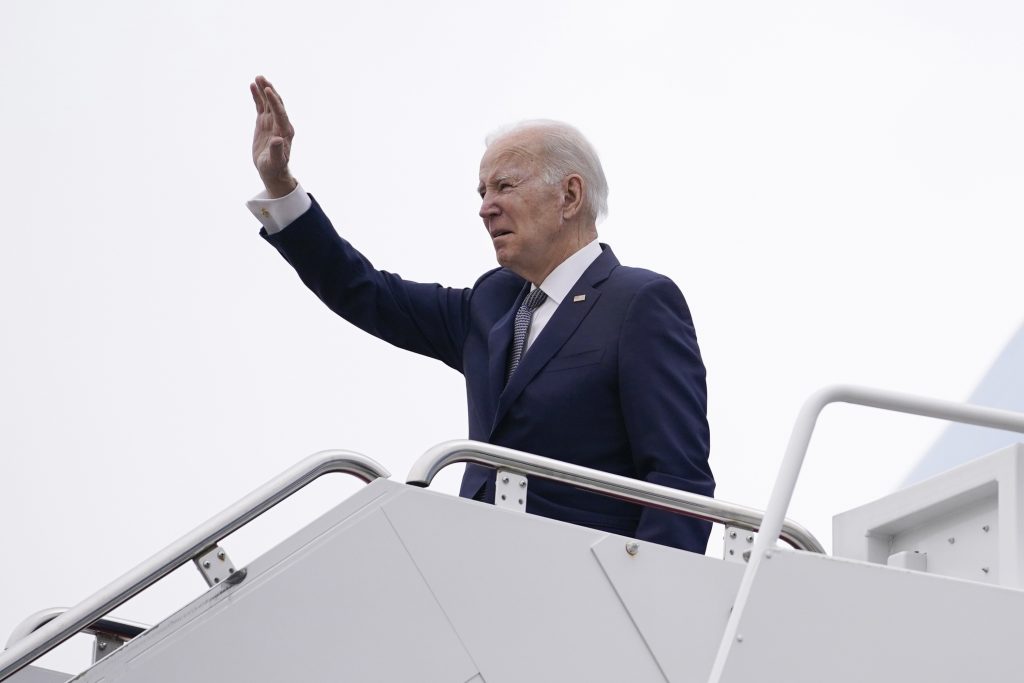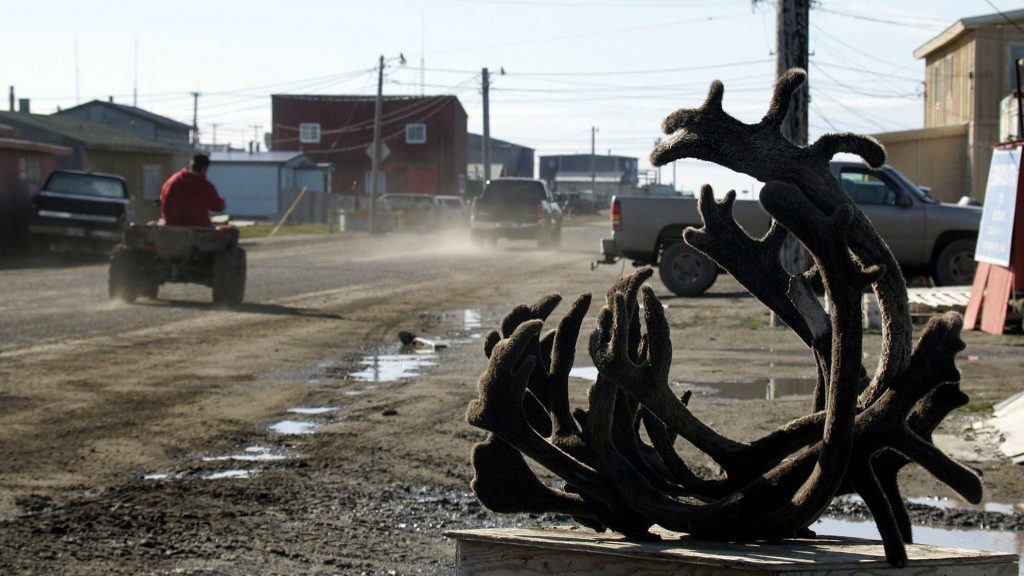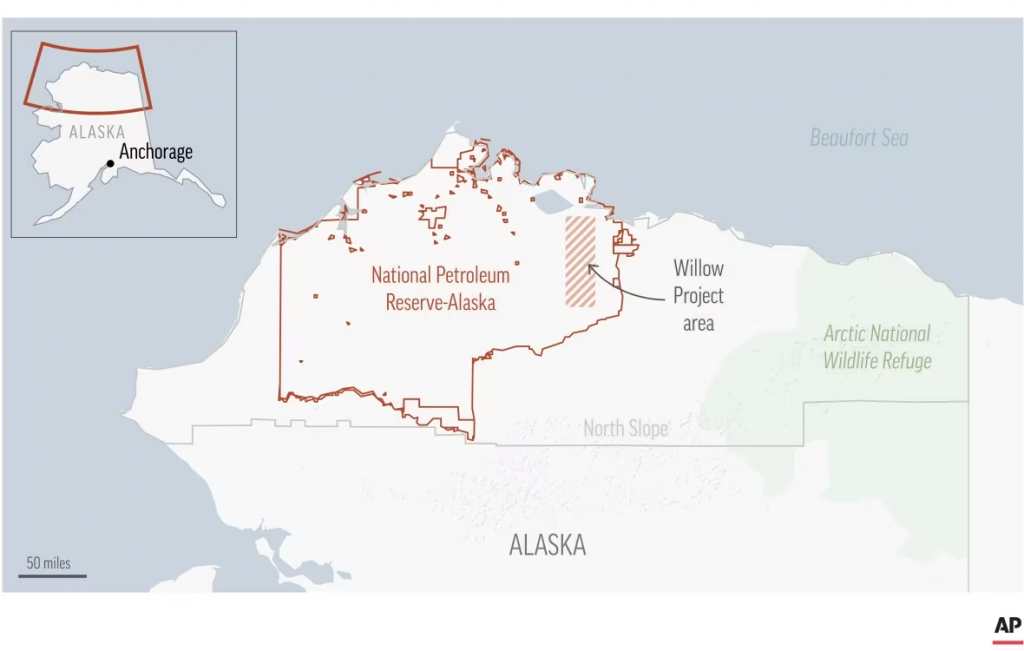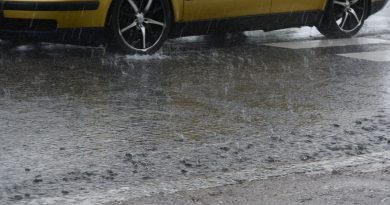Alaska politicians applaud, environmental groups denounce, Arctic project go-ahead

Alaska politicians are welcoming Washington’s go-ahead Monday for a new energy project in the Arctic part of the state, while environmental groups denounced the decision.
“After years of relentless advocacy, we are now on the cusp of creating thousands of new jobs, generating billions of dollars in new revenues, improving quality of life on the North Slope and across our state, and adding vital energy to TAPS to fuel the nation and the world,” Alaska Senator Lisa Murkowski, a Republican, said in a statement after the announcement.
“I thank the administration for listening to Alaskans, rejecting false claims meant to sink this project, and having the courage to make the right decision on Willow.”
The ConocoPhillips Willow oil and gas project proposal included plans for five drill pads in the National Petroleum Reserve-Alaska.
Infield roads, an airstrip, pipelines, a gravel mine and an ice bridge to facilitate transport of modules via sealift across the Colville River, were also part of the plans.
On Monday, U.S. President Joe Biden approved three wells.
Environmental concerns
The project has been widely supported by many Alaskans for the jobs it would create and the revenue it would generate for the state. At the same time, many environmental groups say that with climate change’s disproportionate impact on the Arctic, approving an energy project like Willow was the wrong decision.
“Alaska needs to accelerate the transition to renewable energy and stop relying on climate-wrecking oil and gas projects like Willow,” Kay Brown theArctic policy director for Pacific Environment, a group focused on conservation issues along the Pacific Rim, said in a statement.
“To avoid the most devastating impacts of climate change, scientists around the world agree the climate can’t tolerate more new oil and gas development. If the Biden Administration isn’t willing to put a halt to this massive new oil development, the future is bleak for the Arctic and our planet.”

A TikTok campaign against the project went viral last week and The People vs Fossil Fuels Coalition said Biden’s decision was at odds with earlier pledges to protect the environment in the Arctic.
“Approving a massive new oil drilling project that is estimated to release 280 million metric tons of greenhouse gasses when we are already in a climate emergency is signing away our future,” the group said in a statement Monday.
Revenue will help Indigenous communities say some leaders
Indigenous communities in the region are divided on the project.
In an op-ed in the Anchorage Daily News this month, Asisaun Toovak, the mayor of Utqiaġvik and Chester Ekak, mayor of Wainwright, both cities in Alaska’s North Slope where the project is located, said the Willow plan would bring the development and jobs the region desperately needs.
“We know our lands and our communities better than anyone, and we know that resource development and our subsistence way of life are not mutually exclusive,” the mayor’s wrote.
“Responsible resource development with the inclusion and engagement of North Slope Iñupiat has taken place for over 50 years. It exemplifies a positive model of cultural, economic and ecological interdependence.”

Toovak and Ekak said funds from energy projects help finance essential services and projects in their communities, ranging from infrastructure repairs to youth programs to construction of new facilities.
“We need a stable, healthy economy to continue receiving them,” the mayors said.
“Here in the North Slope, we straddle the line of a traditional subsistence way of living and the economic realities of the modern world. Yet without critical funds made available through responsible natural resource development, many of our people would be forced to leave the lands they have inhabited for thousands of years, thereby extinguishing many of the important characteristics of Iñupiaq culture.”
Impact on subsistence hunters questioned
Other leaders in the region are not so sure, fearing the environmental consequences of the project for subsistence hunters, no matter how good mitigation measures are said to be.
“My hometown, Nuiqsut, is the closest town to the proposed Willow Project, and we have the most to lose,” Rosemary Ahtuangaruak, the mayor of Nuiqsut, a village/community in the North Slope Borough said in a November op-ed in The Hill.
“The Willow project’s massive infrastructure would bulldoze straight through these crucial habitats, redirecting the animal’s migratory paths, moving them away from nearby villages, and endangering the food security of local people. That’s not to mention the damage from exposure to air and water pollution that we face.”

On Monday, Alaska Representative Mary Peltola, a Democrat, said the project was good for Alaska and had the backing of Indigenous communities, unions and large swaths of the public.
“It’s on us here in Alaska to make sure that we make the best of this opportunity—that we use the revenues and jobs and economic opportunity from this project to make investments in the future of Alaska. We need to build up our schools, our housing stock, our rural Internet and electric grids, and more, in order to make this a truly 21st-century economy.”
Write to Eilís Quinn at eilis.quinn@cbc.ca
Related stories from around the North:
Canada: Yukon gov’t boasts of ‘strongest economy in Canada,’ tables $48M surplus budget, CBC News
Norway: Norway’s oil minister: “We need new discoveries”, The Independent Barents Observer
Russia: Crisis-ridden Russian gas industry looks to Arctic for more LNG, The Independent Barents Observer
United States: Sen. Sullivan stresses economic promise of Willow drilling project in annual address to Legislature, Alaska Public Media



